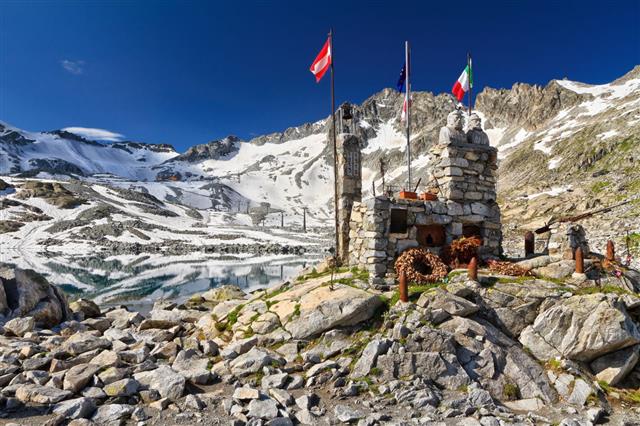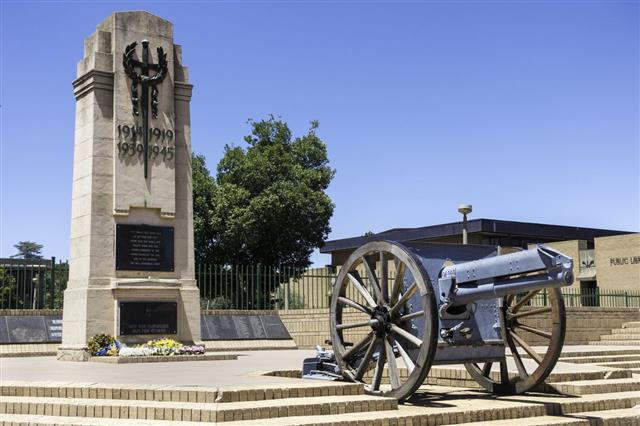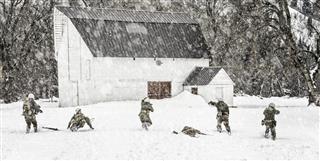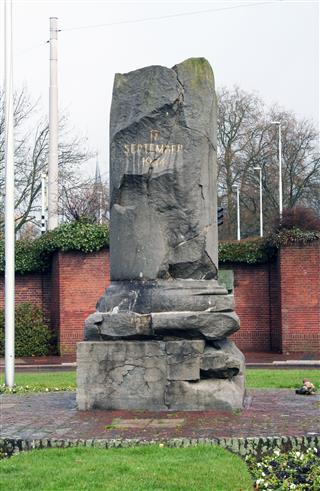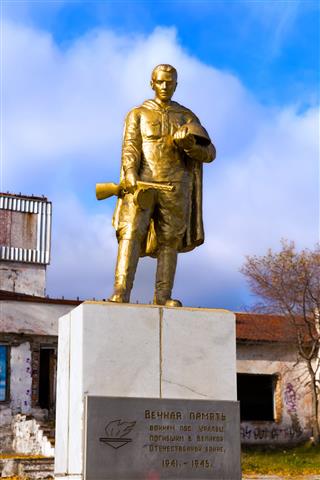
Appeasement was the policy of the English and French governments, of allowing concessions to the dictatorial powers of Nazi Germany and Fascist Italy, in order to avoid conflict in Europe. In this Historyplex article, we will provide some information as to why this policy was formed, what it entailed, and why it ultimately failed in preventing World War II.
|
Did You Know?
After the British Prime Minister Neville Chamberlain finalized the Munich Agreement, a wide-scale anti-appeasement campaign began, which included several prominent members of the British public. In fact, a book named ‘Guilty Men’ was published by a few anonymous journalists, who accused pro-appeasement politicians of deliberately surrendering to the open bullying of Adolf Hitler, and called for their immediate removal from office. |
In the context of politics, the term appeasement represents the policy of a government towards a potential hostile or enemy power, with the aim of avoiding conflict. Between 1937 and 1939, the British and French governments, headed largely by British Prime Minister Neville Chamberlain, held a similar policy towards Nazi Germany.
At the time, all the concessions made towards Adolf Hitler and his government, such as the annexation of Austria and Czechoslovakia were believed to be positive moves by the British politicians and the general public.
In fact, the signing of the Munich Peace Pact of 1938, between Italy, France, Germany, and Britain, prompted Chamberlain to declare that he had secured “peace for our time”, a sentiment which later proved to be massively wrong. Let us now look at the chain of events which led to the appeasement policy.
Reasons for Appeasement
- In the 1930s, the memory of the First World War was still very fresh in the minds of the British and French public and political class, which meant that there was an inclination to maintain peace, regardless of the cost.
- The effects of the Great Depression, were still felt deeply across Europe and so both countries felt that their money should not be spent towards rearming themselves.
- At the time, Great Britain saw communism from Soviet Russia to be a bigger threat than fascism from Nazi Germany and Italy. The British politicians felt that both Hitler and Mussolini were good patriotic leaders of their own countries, who would not pose much of a problem to them.
- The political class of Great Britain felt that Hitler was right about the Treaty of Versailles being unfair to Germany. Therefore, they chose not to oppose him when he acted against the treaty.
Thus, when the policy of appeasement was chosen by Neville Chamberlain, most people agreed that it was a move in the right direction, and that it was in the best interests of all the countries involved.
The Use of Appeasement in WWII
- The first instance of appeasement was seen when Japan invaded Manchuria in China. While the League of Nations led by the Soviet Union, Britain, and France condemned this action, they did little else. This led to a full-scale Japanese invasion of China, in 1937.
- When the fascist forces of Benito Mussolini invaded Abyssinia/Ethiopia in 1935, the League of Nations imposed a few economic sanctions against Italy, but no serious action was taken to deter Mussolini.
- Seeing the League’s unresponsiveness, Hitler cautiously started to rearm the Rhineland areas with German troops and armaments, in violation of the Treaty of Versailles. However, his fears of any offensive Anglo-French reaction went completely unfounded. As Italy and Germany realized that both Britain and France were trying to avoid conflict, they slowly but surely increased the level of their transgressions.
- In 1938, Hitler’s move of uniting Austria with Germany against the Treaty of Versailles, was met once again with inaction from France and Britain.
- The nation of Czechoslovakia was formed under the Versailles Treaty. However, when Hitler threatened war on the Czechs, Britain feared the start of a new pan-European war. To prevent this, Neville Chamberlain met with Hitler at Berchtesgaden, and without consulting with the Czech authorities, he pledged to give all Czech areas having a majority of German population to Germany. He also persuaded the French to agree to this deal. However, Hitler increased his demand for the occupation of all of Sudetenland.
- Possibly in desperation and hoping that Hitler would be content after getting this area of Czechoslovakia, both France and Germany agreed to the demands, on the condition that there would be no more invasions by the Germans.
- The Munich Agreement was signed to finalize this peace agreement amongst the British, French, Germans, and Italians. The Soviets and the Czechs were not invited. Czechoslovakia was warned that if it stood against the treaty, it would not find any support against the German forces.
- With the Munich Agreement, Chamberlain was confident that he had averted all chances of war and had secured European peace.
However, the above examples of appeasement during this period may have actually contributed to the start of WWII rather than prevent it. Let us see why.
How Appeasement Led to World War II
Most critics argue that without the use of an appeasement policy, the likelihood of the Second World War was very low. Due to the policy, the Allied Powers missed several opportunities to nip Hitler’s ambitions in the bud, some of which were:
- The countries of Czechoslovakia, Yugoslavia, and Romania were allies, and had agreed to protect each other from external powers. In turn, France, was an ally to each of these nations. If France had backed the Czechs during the initial German invasions, Hitler would have found it much more difficult to realize his goals.
- When Italy invaded Ethiopia, the League of Nations responded with mild trade embargoes. If the major powers like France and Britain had been harder in their action against Italy, it would have sent a strong message to the Germans and perhaps discouraged Hitler from his plans of invasion.
- After the Munich Agreement, the Soviets felt that they had been slighted by England and France, as they were not consulted on the peace pact. This resulted in an non-aggression pact between Russia and Germany. If the British and French had moved faster to get the Soviets on their side, the added power of the Russians to the Allied effort would have put immense pressure on the Germans.
- When Germany rearmed the Rhineland area, it was a direct violation of the Treaty of Versailles. However, there was hardly any response from the western powers, which emboldened Germany to transgress repeatedly.
- The Treaty of Munich handed over the Sudetenland area of Czechoslovakia to Germany. Because the area contained most of the Czech fortifications and armaments, the pact left the country virtually defenseless against the Germans, giving Germany a massive shot in the arm.
- The invasion of Austria by Germany was another violation of the Treaty of Versailles. However, the tepid response of the western forces was taken as a sign of weakness by the Nazis, and the event eventually led to the persecution of Austrian Jews.
- As we can see, the effects of the appeasement policy was contrary to what was expected, and might have actually added fuel to the flames. Adolf Hitler and Benito Mussolini saw Britain and France as weak. Other European powers such as the Czechs, the Poles, and the Russians felt betrayed by the Munich Agreement. These became the major factors that led to the failure of the policy of appeasement.
Despite severe criticisms against the appeasement policy, the British government continued to hold out hope, until finally Adolf Hitler attacked and seized the rest of Czechoslovakia. It was now evident that the attempt at appeasement had not only failed, but also backfired. As Hitler moved his sights towards Poland, Chamberlain’s government assured the Polish of support if and when Germany attacked. The false hope of peace changed into an acceptance, that a second World War was now inevitable.
